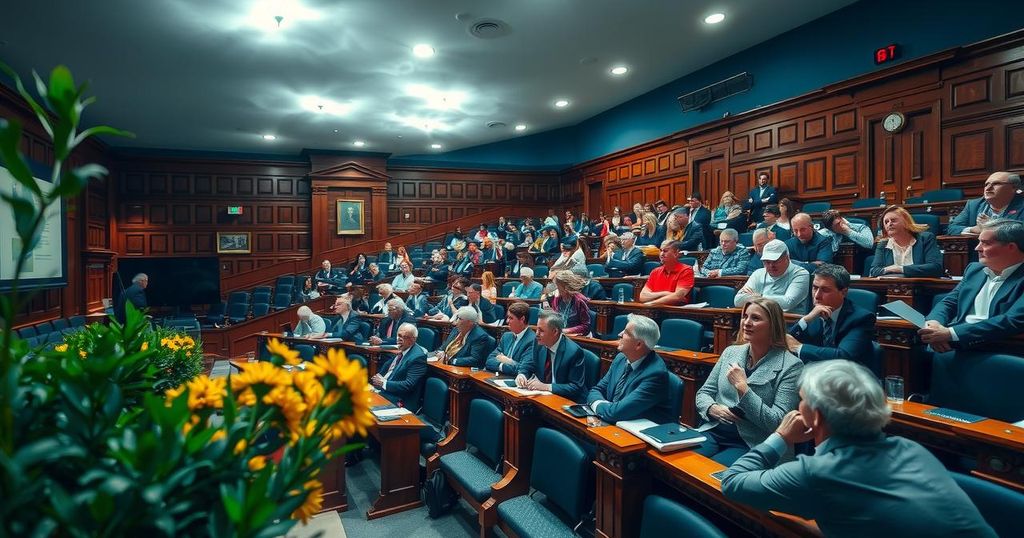Adil Najam’s Climate Change Lectures: Challenging Perspectives on Adaptation and Faith

Adil Najam, Professor at Boston University, delivered influential lectures on climate change at Cambridge and Oxford in October 2023. His discussions focused on the necessity of immediate action for adaptation in vulnerable regions and the role of faith in motivating climate-conscious behavior, particularly within Muslim communities.
Adil Najam, Dean Emeritus and Professor of International Relations and Earth and Environment at Boston University’s Frederick S. Pardee School of Global Studies, delivered a series of impactful lectures in the United Kingdom this October focused on the pressing issue of climate change adaptation and faith-driven action against climate change. On October 10, at the University of Cambridge, Najam conducted two notable presentations. His inaugural talk, titled “Climate and Development in the Age of Adaptation,” was held at the Attenborough Center for the Cambridge Conservation Initiative (CCI), and captivated a full audience comprising faculty and students. During this session, he introduced his innovative concept of the ‘Age of Adaptation,’ which posits that in the face of climate change, immediate action is essential, especially for vulnerable developing nations that have historically contributed the least to the problem. Following this, Najam’s second lecture at the UN Environment Programme’s World Conservation Monitoring Centre (WCMC) delved into nature-based climate solutions specifically tailored for Pakistan. He highlighted his leadership role in the “Living Indus Initiative,” a significant project he authored that has been integrated into Pakistan’s climate adaptation framework and recently was honored with the UNEP ‘Flagship Climate Project’ award. On October 14, Najam continued his discourse at the Oxford Centre for Islamic Studies (OCIS), where he posed the critical inquiry, “Can Faith Motivate Better Climate Behavior?” Addressing another engaged audience, he critically assessed the drawbacks of relying exclusively on scientific and economic incentives to propel climate action. Instead, he argued for the necessity of instilling values and faith-based motivations, particularly within Muslim communities, emphasizing water conservation as a focal point. This Oxford presentation formed part of Najam’s ongoing ‘Faith and Climate Change’ initiative at the Pardee Center for the Study of the Longer-Range Future, in partnership with OCIS. Additional details and photos from the Cambridge presentations can be found here and here. Additional details and photos from the Oxford presentation are available here.
Climate change presents an existential challenge, particularly to developing nations that are least responsible for its onset yet bear a disproportionate share of its impacts. As adaptation becomes increasingly critical, educators and leaders like Adil Najam emphasize the need for innovative approaches that transcend traditional environmental strategies. Najam’s concept of the ‘Age of Adaptation’ reflects this perspective, advocating for immediate actions beyond mere emissions control. Moreover, integrating faith and values into climate action has emerged as an essential strategy, particularly in cultures where communal and religious principles play a significant role in societal behavior.
In conclusion, Professor Adil Najam’s recent lectures at Cambridge and Oxford highlight essential facets of climate change adaptation, demonstrating the urgent need for innovative and culturally attuned approaches. His advocacy for faith-based initiatives in climate action underscores a holistic understanding of the issue, suggesting that combining scientific and moral imperatives may yield more effective results in addressing climate challenges, particularly in vulnerable communities. Najam’s insights call for a reevaluation of how climate action is motivated and implemented globally.
Original Source: www.bu.edu






